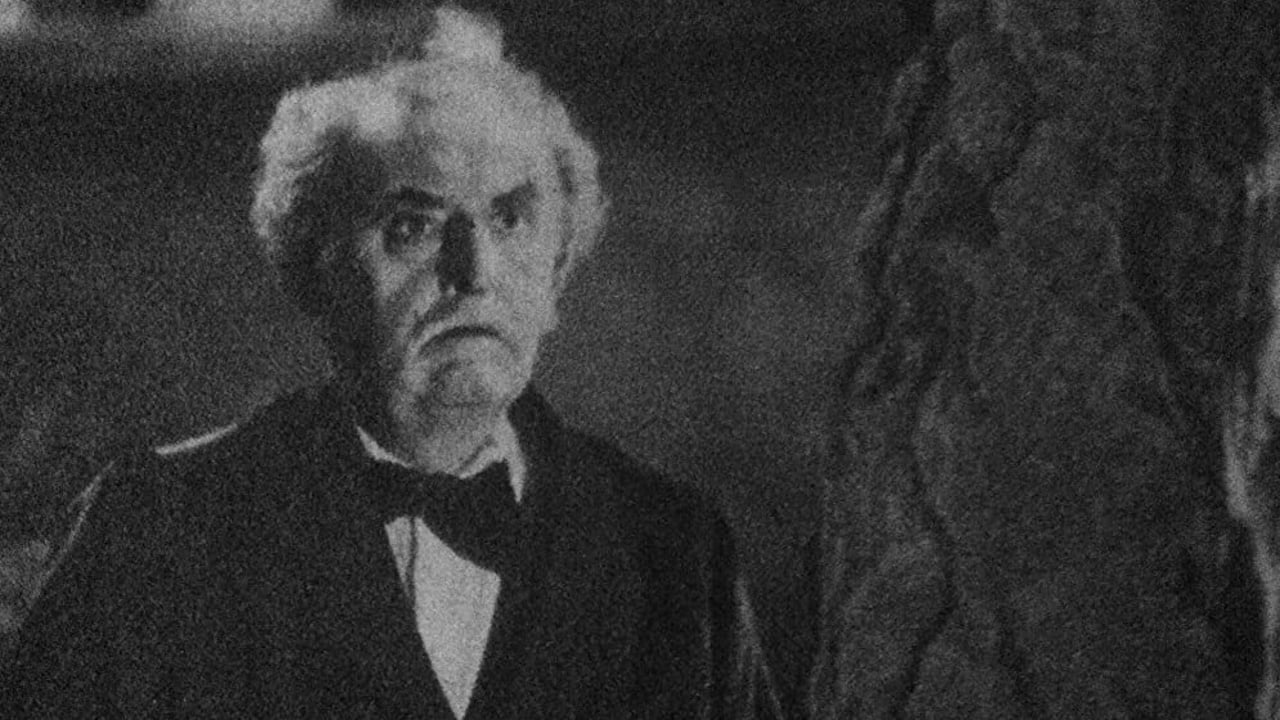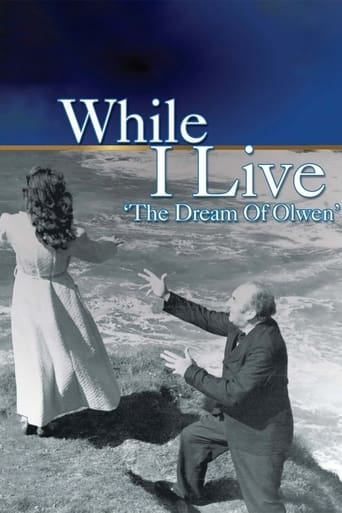

What makes it different from others?
... View MoreStylish but barely mediocre overall
... View MoreIt is so daring, it is so ambitious, it is so thrilling and weird and pointed and powerful. I never knew where it was going.
... View MoreA film with more than the usual spoiler issues. Talking about it in any detail feels akin to handing you a gift-wrapped present and saying, "I hope you like it -- It's a thriller about a diabolical secret experiment."
... View MoreApart from the fact that they were all British films made during the 1940s, what do "Dangerous Moonlight", "The Glass Mountain" and "While I Live" have in common? One answer is that all three films feature a piece of music which today is far better known than the film itself- Richard Addinsell's "Warsaw Concerto", Nino Rota's "The Legend of the Glass Mountain" and Charles Williams' "The Dream of Olwen".Another answer might be that all three films also feature a composer as one of the main characters. I would regard the composer in "While I Live", a young woman named Olwen Trevelyan, as a major character, even though she dies near the beginning of the film. One night in 1922 Olwen, who has been struggling to complete her latest composition, falls to her death from a cliff near her home in Cornwall.The rest of the action takes place in 1947, the year the film was made. The house is now occupied by Olwen's elder sister Julia, their cousin Peter, his wife Christine and a few servants. Julia has become a gloomy, reclusive figure, obsessed with the memory of her late sister; the house has become a virtual shrine to Olwen. On the twenty-fifth anniversary of her death her final composition, completed by another composer and given the title "The Dream of Olwen", is broadcast on the radio in a special memorial concert.While Julia and her household are listening to the broadcast, an unknown young woman enters the house. She claims to have lost her memory and to have no idea of who she is, but she is a gifted pianist and has a surprisingly detailed knowledge of Olwen's life and of the Trevelyan family. Julia becomes convinced that the girl is, in some sense, Olwen come back to her. She does not believe this in the strictly literal sense- even if the real Olwen had somehow managed to survive her fall from the cliff she would have been middle-aged in 1947, much older than this girl who is still in her twenties. Nevertheless, Julia becomes obsessed by the idea that this woman is the reincarnation of her dead sister or the embodiment of her spirit.Some reviewers have made the point that during, and in the years immediately following, the Second World War, there was a revival of interest in spiritualism in Britain, just as there had during and after the First. That may be true in itself, but the point is not relevant to this film, which offers little support to the spiritualist cause. The only vaguely "supernatural" element in the drama is the figure of Julia's elderly manservant Nehemiah, who seems to have some sort of ability as a faith healer, but for the film's central mystery there is a perfectly rational explanation. Julia's ideas about reincarnation are shown to be not only wrong but dangerously so. They are dangerous in that they lead to a family rift between Julia and Christine, who has no time for what she sees as Julia's crazy notions, and in that for a time they prevent the young woman, whose real name is Sally Grant, from receiving the medical help she needs.Some have complained that the film is excessively melodramatic and that the cast are guilty of overacting. There is some justice in this charge, the worst offender being Tom Walls as Nehemiah, whom he plays as a sort of cross between a stage yokel and Merlin the wizard, complete with his ripest stage Mummerset accent. ("Ooh arr, oi be jest a zimple Carnishman .."). Sonia Dresdel seems to go almost as far over the top, although in her defence it could be said that it would be difficult to play the half-crazy Julia in any other way. Overacting seemed to be an occupational disease in the British cinema of the forties; there was another outbreak in "Madonna of the Seven Moons", another film about an amnesiac woman made a couple of years before this one.Of the three films I mentioned in my opening paragraph, this one is, for all its occasional absurdities, probably the best. Were it not for its music, Dangerous Moonlight" would have been no more than a dull wartime propaganda movie, and if "While I Live" is overacted, "The Glass Mountain" is a prime example of the opposite sin, that of underacting, with the whole cast (apart from the Italian-born Valentina Cortese) keeping the stiffest of upper lips even when they are supposed to be in the throes of strong emotion. (Some directors seemed to find it difficult to steer a middle course between the two extremes). At least "While I Live" offers us an unusual story, with characters one can identify with and care about. Julia's ideas may be dangerously wrong, but we can nevertheless sympathise with her anguish over the premature death of her brilliant and beloved younger sister. 6/10- 5/10 for the film, with a bonus point for the music. And had the scriptwriters rewritten the story to get rid of Nehemiah, that mark might well have been higher.
... View MoreLike another reviewer on this board, I can't help but go against the grain and describe this film as tosh: moody, well-shot tosh perhaps, but tosh nonetheless. It has a nice bit of piano music in it which keeps popping up time after time, and the usual distinguished performances we see from British actors in the 1940s, but that's about it.WHILE I LIVE has an arresting opening sequence which climaxes in a woman dropping off a Cornish clifftop. Years later, folk in the ancestral home question whether a mysterious young woman who has mysteriously arrived at the property is in fact the reincarnation of the dead woman. Yes, it's one of those melodramas with a spiritual edge, made as a result of the massive loss of life in the Second World War (just as WW1 heralded another mini-boom in spiritualism).Sadly, WHILE I LIVE doesn't offer much in the way of mystery or depth, and after a while all of the brooding and endless dreamy moments become more than a little tiresome. I'm the sort of person who looks for incident in a film, whatever its type, and there just isn't enough of it here.
... View MoreI have to disagree with all the other reviewers.Unfortunately this nothing but melodramatic tosh which because of its slightly spiritualistic theme was popular with audiences after the war since they were still grieving for those lost in the war.This film actually makes Madonna of the seven Moons seem to be a work of the realist school.The acting is rather hammy,Tom walls with his mummerset accent is particularly bad.The production generally poor and the script is just a laugh a minute.Every possible cliché of this type of film is piled on.Much as i love films of this era i have to say that i just found it to be preposterous nonsense but suited to the audience that viewed it.
... View MoreI've seen this film dozens of times, albeit that the music "The Dream of Olwen" is the most haunting and beautiful piece and holds this film together, the acting and story line I find entertaining and most pleasant...It's a GREAT pity they don't make films like this now, instead of the some of the TRASH that is churned out.I hope this film will soon be put to DVD and available in England. So many fine British films never seem to find their way to DVD of even become available to the British publicIf you like truly great music (Written by Charles Williams) and a light yet very watchable film then this is for you, a haunting film that you will recall, and watch time and again..Excellent !
... View More